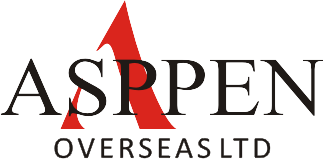Introduction
Canada is renowned for its excellent education system, diverse culture, and stunning natural landscapes, making it a top destination for international students. With its high-quality universities and colleges, Canada offers a wide range of programs and opportunities for students from around the world.
Why Study in Canada?
- Quality Education: Canadian universities are known for their high academic standards and research excellence.
- Cultural Diversity: Canada is a multicultural country that welcomes and embraces diversity.
- Work Opportunities: International students can work part-time during their studies and gain valuable work experience.
- Post-Graduation Opportunities: Canada offers post-graduation work permits, allowing graduates to work in the country after completing their studies.
- Safety: Canada is considered one of the safest countries in the world.
Top Universities
- University of Toronto
- University of British Columbia
- McGill University
- University of Alberta
- University of Waterloo
- University of Montreal
- University of Calgary
Popular Courses
- Business and Management
- Engineering and Technology
- Health Sciences and Medicine
- Environmental Sciences
- Arts and Humanities
- Information Technology and Computer Science
Education System
Canada's education system is divided into primary, secondary, and post-secondary education. Post-secondary education includes colleges, universities, and technical institutes. The education system is highly regarded globally, with a focus on practical learning and research.
Application Process and Steps
- Research: Identify universities and programs that match your interests and career goals.
- Entry Requirements: Check specific academic and language proficiency requirements for each program.
- Application: Submit applications directly to universities or through centralized application systems.
- Acceptance: Receive and accept the offer letter from the university.
- Student Visa: Apply for a study permit with the required documents, including the offer letter, proof of funds, and a valid passport.
Eligibility
- Academic Qualifications: Meet the academic entry requirements for the chosen program.
- Language Proficiency: Demonstrate English or French language proficiency through tests like IELTS, TOEFL, or DELF/DALF.
- Financial Stability: Provide proof of funds to cover tuition fees and living expenses.
- Health Requirements: Complete medical examinations, if required.
Cost of Studying
- Tuition Fees: Vary by program and institution, typically ranging from CAD 10,000 to CAD 35,000 per year for undergraduate programs.
- Living Expenses: Estimated at CAD 10,000 to CAD 15,000 per year, covering accommodation, food, transportation, and other expenses.
Scholarships and Financial Aid
- Government Scholarships: Various scholarships offered by the Canadian government for international students.
- University-specific Scholarships: Many universities offer scholarships based on academic merit and financial need.
- Private Scholarships: Numerous organizations and foundations provide scholarships for international students.
Work Opportunities
- Part-time Work: International students can work up to 20 hours per week during semesters and full-time during breaks.
- Internships and Co-op Programs: Opportunities for internships and cooperative education programs to gain practical experience.
Post-Study Work Visa
- Post-Graduation Work Permit (PGWP): Allows graduates to work in Canada for up to three years after completing their studies.
Visa Requirements
- Study Permit: Required documents include an acceptance letter from a designated learning institution, proof of funds, a valid passport, and a medical examination, if necessary.
Health and Safety
- Health Insurance: Mandatory health insurance for international students.
- Safety: Canada is considered one of the safest countries globally, with low crime rates and a welcoming environment.
Living Expenses
- General Living Costs: Estimated at CAD 10,000 to CAD 15,000 per year, covering accommodation, food, transportation, and other living expenses.
Accommodation Costs
- On-campus: University residences typically range from CAD 5,000 to CAD 12,000 per year.
- Off-campus: Renting apartments or shared housing can cost between CAD 500 to CAD 1,500 per month, depending on the location.
Tips for a Successful Experience
- Plan Ahead: Research universities, programs, and application requirements well in advance.
- Stay Organized: Keep track of deadlines and required documents throughout the application process.
- Be Open-Minded: Embrace the cultural diversity and be open to new experiences.
- Network: Build connections with classmates, professors, and professionals in your field of study.
- Explore: Take advantage of opportunities to explore Canada's natural beauty and vibrant cities.
Studying in Canada offers an enriching experience with high-quality education, diverse culture, and abundant opportunities for personal and professional growth.


